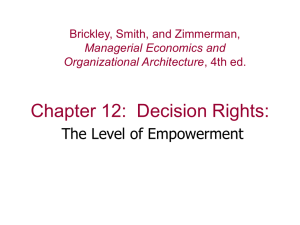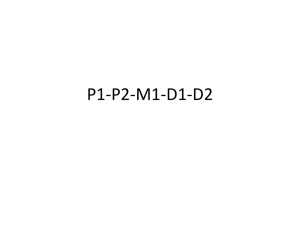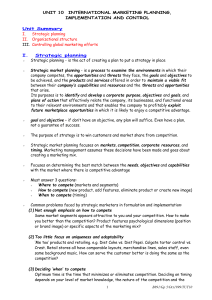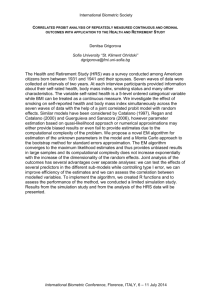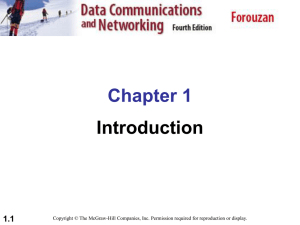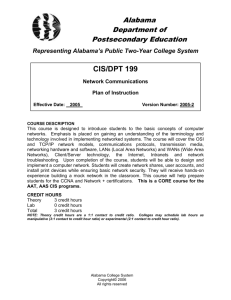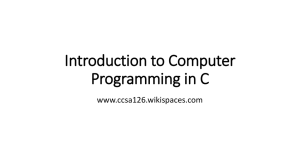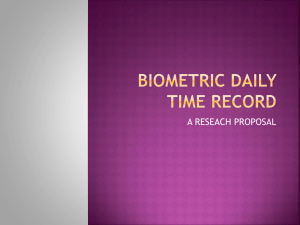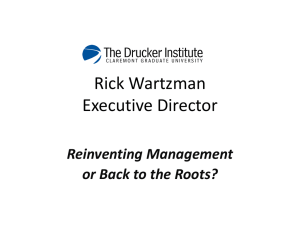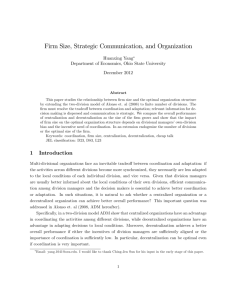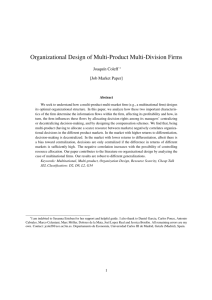here
advertisement
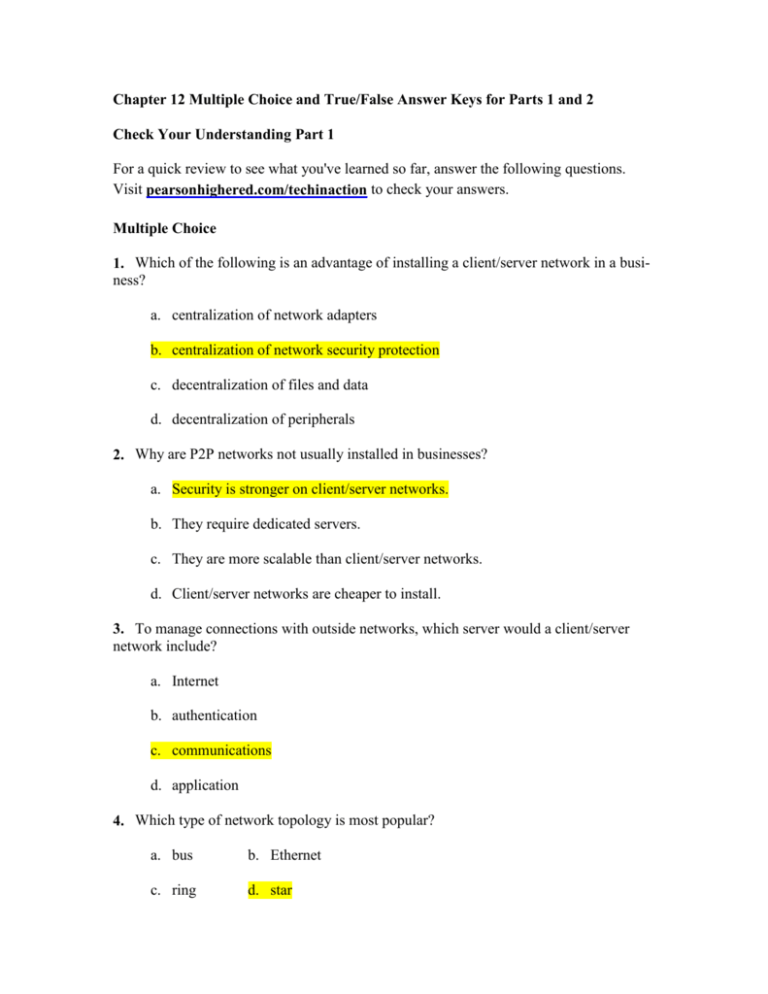
Chapter 12 Multiple Choice and True/False Answer Keys for Parts 1 and 2 Check Your Understanding Part 1 For a quick review to see what you've learned so far, answer the following questions. Visit pearsonhighered.com/techinaction to check your answers. Multiple Choice 1. Which of the following is an advantage of installing a client/server network in a business? a. centralization of network adapters b. centralization of network security protection c. decentralization of files and data d. decentralization of peripherals 2. Why are P2P networks not usually installed in businesses? a. Security is stronger on client/server networks. b. They require dedicated servers. c. They are more scalable than client/server networks. d. Client/server networks are cheaper to install. 3. To manage connections with outside networks, which server would a client/server network include? a. Internet b. authentication c. communications d. application 4. Which type of network topology is most popular? a. bus b. Ethernet c. ring d. star 5. A private network set up by a business that is used exclusively by a select group of employees and suppliers is known as a(n): a. MAN b. intranet c. PAN d. vendor network True–False _____ 1. Client/server networks are less difficult to administer than P2P networks. (F) _____ 2. A file server is used to host websites on a client/server network. (F) Part 1: Critical Thinking 1. Acceptable-Use Internet Policies Most schools have drafted acceptable-use policies for computers and Internet access to inform students and employees of the approved uses of college computing assets. Consider the following areas of a potential college policy: a. Should employees be allowed to use their computers and Internet access for personal tasks (such as checking personal e-mail or accessing Facebook)? If so, how much time per day is reasonable for employees to spend on personal tasks? b. Should student computer and Internet usage be monitored to ensure compliance with the personal use policies? Should the college inform students that they’re being monitored? What should the penalties be for violating these policies? Most students will agree that employees should be permitted to use their employer’s computer for personal reasons during breaks and lunch hours as long as they do not violate the institution’s acceptable-use policy. Students should debate whether colleges have the right to monitor computer activity and whether computer users should be made aware of any monitoring software in use. Students might discuss how grades should not be impacted due to computer activity because grades are based on academics. 2. Wireless Access If you’re going to open a business, such as a sandwich shop or beauty salon, you need to decide if customers should be provided with Internet access. Consider the following: a. Should Internet access be free? If access is not to be free, how much should customers pay? b. How long should the average period of access be (and should there be a limit)? Student responses may vary, but most will probably be in favor of free Internet access. Students may argue that many businesses already provide free, unlimited access and that this is becoming the norm. However, students should also acknowledge that such a policy may result in direct or hidden costs to the business. Direct costs may include the actual usage costs, while hidden costs may include lost sales since customers may linger longer but not spend more money and take seats away from new paying customers. The decision to provide free access may also depend upon the type of business – sandwich and coffee shops, automotive service centers, and similar business may be likely spots since customers may spend a fair amount of time there, but other business may not be able to accommodate customers staying for longer amounts of time. How students answer this question may also determine the decision to provide unlimited or time-limited access. Check Your Understanding Part 2 For a quick review to see what you've learned so far, answer the following questions. Visit pearsonhighered.com/techinaction to check your answers. Multiple Choice 1. Which of the following is NOT necessary in every client/server network? a. bastion host b. network adapters c. transmission media d. NOS software 2. Fiber-optic cable most likely would be used in a business network when a. saving money is more important than speed. b. electrical or magnetic interference is present. c. very short cable runs are required. d. the installation budget is very limited. 3. NOS software is needed a. on all computers in a client/server network. b. only on the servers in a client/server network. c. only if a communications server is deployed on a client/server network. d. only when configuring a network in a star topology. 4. On client/server networks, bridges a. transfer data between two networks. b. route data between two collision domains on a single network. c. move data efficiently from node to node on the internal network. d. are necessary only in networks using the ring topology. 5. Providing adequate security on a corporate network involves all of the following issues, except a. authentication. b. restricting access to servers. c. proprietary software lockout. d. limiting network access by requiring passwords. True–False _____ 1. Routers are used to route data between two different networks. (T) _____ 2. Two different types of network operating software cannot be deployed on the same network. (F) Part 2 Critical Thinking 3. Biometric Access to Networks Biometric security devices are still expensive. But there are usually parts of any organization that need to be more secure than others, and you can often justify the cost of these devices for certain areas. Consider the following organizations and prepare a paper discussing which areas of the following businesses could most benefit from installing biometric security devices: a. Financial institution (bank) b. Public university that conducts scientific research c. Pharmaceutical company Students should explore why each of these types of organizations would require enhanced security procedures. Would the same level of security be appropriate for every area of the organization? Which areas might need enhanced security procedures? If circumstances allow, students would benefit from class presentations and discussion of these topics. Critical thinking abilities will be enhanced by asking students to respond to all three examples, rather than just one of the choices. Students could be asked why some level of security procedures would be appropriate for just about any type of business organization. 4. Monitoring Computer Usage in the Workplace Software tools for monitoring computer usage are readily available on the Internet, often for free (such as Best Free Keylogger). In most jurisdictions, it’s legal for employers to install monitoring software on computer equipment they provide to employees. It’s usually illegal for employees to install monitoring software on computers owned by their employers for purposes of monitoring computer usage of coworkers or bosses. Do you think this double standard is fair? What circumstances do you think would justify an employee monitoring other employees’ computer usage? Should whistleblowers have the right to conduct computer usage monitoring? Fully explain your answers. Students should agree that employers have the right to monitor employee use of employer resources. A discussion about proper professional conduct and business ethics could be beneficial for students. The question about getting approval before installing monitoring equipment could be broadened to include what reason would an employee give for making such a request? What protection is needed for whistleblowers? The viewpoints of students could be expanded by considering these questions from both an employee perspective and a management perspective. These issues are frequently in the news, and any recent topics could be included in classroom discussions.
